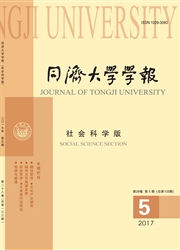

 中文摘要:
中文摘要:
作为一项复杂的系统工程,中国的区域一体化在目标、主体、关系等方面存在着严重的“碎片化”问题,传统的压力型管理模式已难以应对,亟须重构治理范式。整体性治理与复杂系统理论具有相当的契合性和高度的互补性,文章基于复杂系统理论,提出区域一体化发展的全新治理范式,明确区域一体化发展的动力逻辑。中国区域一体化的整体性治理要坚持系统性、协同性原则,注重子系统的关联作用,在设施联通、产业发展、要素集聚、城市群建设、合作治理机制、软实力提升等方面实现突破。
 英文摘要:
英文摘要:
As a complex system engineering, regional integration in China involves serious "fragmentation" problems in objectives, subjects and relations. As the conventional pressure-type management mode fails to tackle them, it is urgent to reconstruct a new governance paradigm. Holistic governance theory is highly compatible and complementary with complex systems theory. This paper proposes a new-type governance paradigm for regional integration and clarifies the logic of driving force for regional integration based on the complex systems theory. It claims that the holistic governance of regional integration in China should adhere to the principles of systematicness and coordination, focus on the interaction of subsystems, and achieve a breakthrough in such aspects as facility interconnection, industrial development, elements gathering, urban agglomeration, cooperative governance mechanisms, and soft power enhancement.
 同期刊论文项目
同期刊论文项目
 同项目期刊论文
同项目期刊论文
 期刊信息
期刊信息
